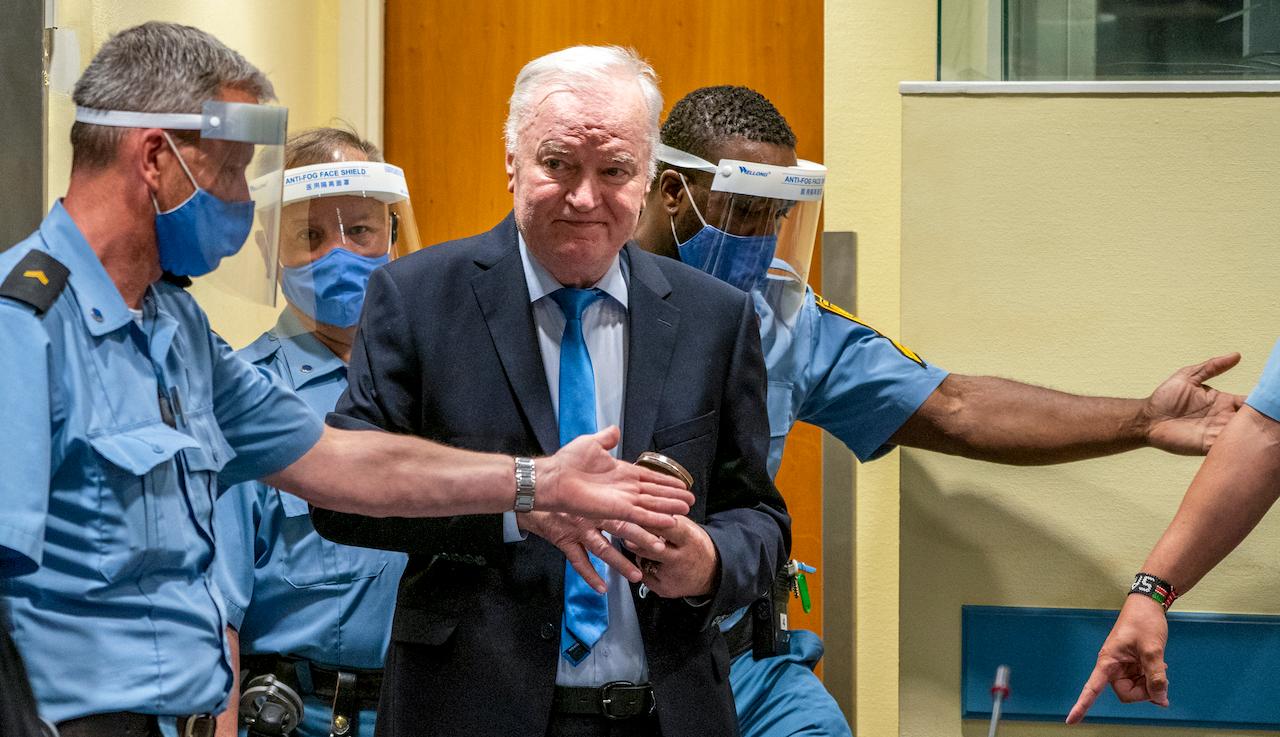UN court rejects appeal of former Bosnian Serb military chief against life for 8,000 Muslim deaths
The 'Butcher of Bosnia' ordered the worst atrocity in Europe since World War II.
Just In
Former Bosnian Serb commander Ratko Mladic has lost his appeal against a 2017 conviction for genocide, war crimes and crimes against humanity.
The UN court upheld the life sentence for his role in the killing of about 8,000 Bosnian Muslim men and boys in Srebrenica in 1995.
The massacre, in an enclave supposed to be under UN protection, was the worst atrocity in Europe since World War Two.
It is not yet clear where Mladic will serve the rest of his sentence.
The five-person appeals panel in The Hague found Mladic had failed to provide evidence to invalidate the previous convictions against him, although the presiding judge dissented on almost all counts.
Mladic had denounced the tribunal during his appeal hearing in August, calling it a child of Western powers. His lawyers had argued he was far away from Srebrenica when the massacre happened.
Mladic, known as the “Butcher of Bosnia”, was arrested in 2011 after 16 years on the run.
In Sarajevo, one Bosnian newspaper led its online coverage of the verdict with the headline: “Look at the butcher’s tears when he realises that he will die behind bars.”
But the reaction among Mladic’s supporters was vastly different. His son, Darko Mladic, said his father “did not have a chance for a fair trial” and described the proceedings as “a travelling circus”.
The current president of the Bosnian Serb enclave, Zeljka Cvijanovic, said the tribunal had “once again confirmed its role as anti-Serb court, which establishes responsibility for war crimes not by evidence, but by the ethnicity of the indicted”.
Some of the survivors who travelled to The Hague hoped that Ratko Mladic would use his last public appearance to offer an apology that could help reconciliation in the still divided region.
But when the final judgment came, the man guilty of severing so many lives offered only silence.
Subscribe to our newsletter
To be updated with all the latest news and analyses daily.
